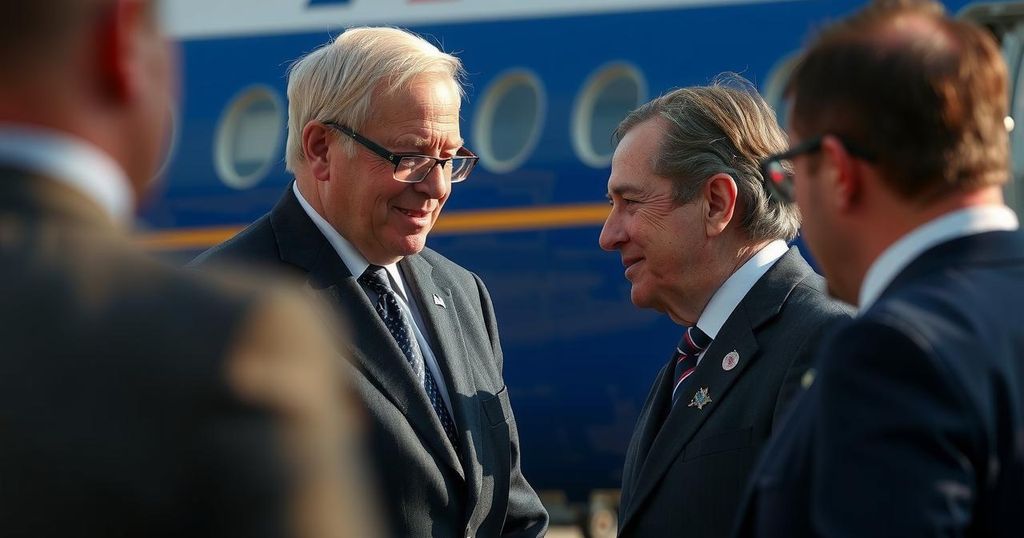President Biden Advocates for Transatlantic Unity Amidst Global Tensions During European Visit

President Biden’s European trip aims to bolster support for Ukraine and advocate for peace in the Middle East amid the backdrop of the upcoming U.S. presidential election, which could significantly affect transatlantic relations. Key discussions with European leaders emphasize the historic partnership and the imperative for continued cooperation in addressing global conflicts.
In what is likely to be his final European visit as President, Joe Biden emphasized the necessity for the United States and its European allies to maintain unity in their support for Ukraine and pursue peace in the Middle East. During his trip, he engaged in discussions with key leaders, including German Chancellor Olaf Scholz and plans to meet with French President Emmanuel Macron and UK Prime Minister Rishi Sunak. The backdrop of Biden’s trip is the approaching presidential election, which introduces uncertainties regarding transatlantic relations, particularly if former President Donald Trump were to regain the presidency. Trump has previously exhibited skepticism towards European alliances and has been critical of the defense contributions from European nations. At a ceremony in Berlin, German President Frank-Walter Steinmeier recognized Biden’s role in fortifying the alliance, stating, “We are more than just other countries. We are partners. We are friends… we hope that Europeans remember America is indispensable for us.” Biden received accolades for his contributions, including the Grand Cross Special Class award, noting, “We should never underestimate the power of democracy. We should never underestimate the power of alliances.” Concern over ongoing conflicts was palpable, with Biden advocating for a ceasefire in Gaza following the Israeli military’s operation that resulted in the death of Hamas leader Yahya Sinwar. Biden characterized this event as “a moment of justice,” expressing hope that it might serve as an impetus for renewed peace talks. Throughout the discussions, the situation in Ukraine remained a focal point, with Biden and Scholz underscoring the importance of continued support for Ukrainian stability as well as mitigating conflicts in the Middle East. Following the diplomatic engagements, Biden is scheduled to return to the United States at the end of the trip.
The article centers around President Joe Biden’s significant diplomatic visit to Germany amid pressing geopolitical tensions, notably the wars involving Ukraine and the ongoing Gaza conflict. It highlights the delicate balance Biden must navigate in his efforts to sustain international alliances while facing domestic political challenges. The looming U.S. presidential election on November 5 introduces additional complexities, particularly considering the contrasting foreign policy perspectives of potential candidates, notably former President Donald Trump. The visit underscores the importance of cooperation among allies in response to prominent global conflicts, reinforcing themes of democracy, partnership, and collective security.
In conclusion, President Biden’s visit to Europe underscores the critical need for sustained cooperation between the United States and its European allies in light of significant geopolitical challenges. The discussions centered on the ongoing support for Ukraine amidst tensions with Russia and the pursuit of peace in the Middle East following the recent developments in Gaza. The influence of the upcoming presidential election further emphasizes the necessity for transatlantic unity, with leaders expressing hope for a strong and continued partnership regardless of electoral outcomes. Biden’s calls for democracy and alliances reflect a commitment to collaborative efforts in addressing such global issues.
Original Source: www.usatoday.com







